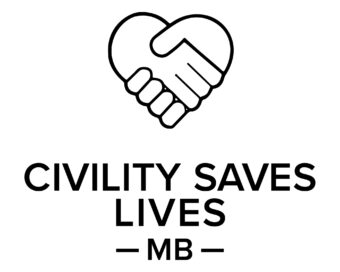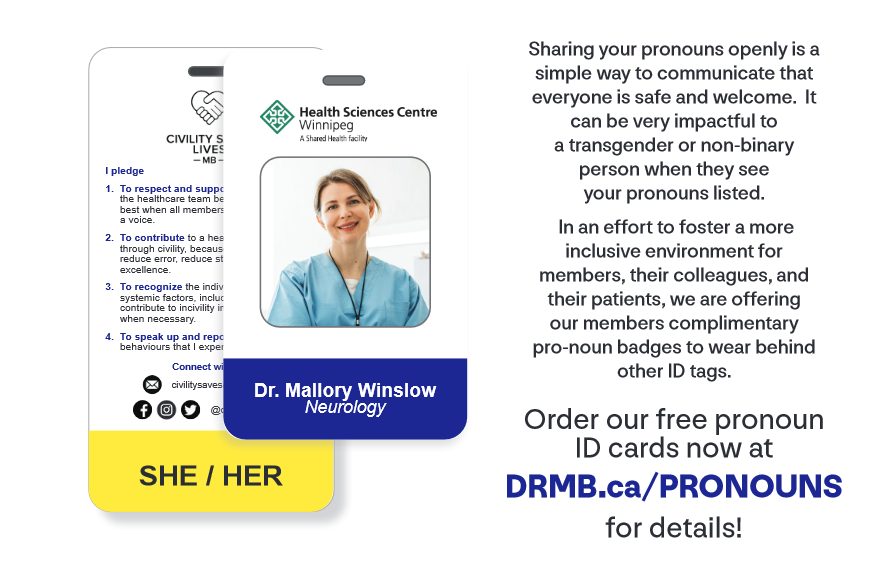Civility In a Time of Burnout: Inclusive Behaviour Builds Better Teams
By Ashley Smith

A study by the Canadian Medical Association (November 2021) revealed 53 percent of Canadian physicians and medical learners were experiencing “high levels” of burnout, compared to 30 percent four years before. When teams experience this level of burnout, they can revert to aggressive behaviours, belittling comments, and distractedness. An innocent eye roll, or off-the-cuff remark, has the power to significantly affect a medical learner’s confidence and sense of belonging right when they need it most.
Medical learners, including both resident physicians and medical students impacted by incivility in the learning environment have reported losing time worrying about the perceived rudeness, feeling less engaged to their work, and spending time trying to avoid the offender. The ripple effect of incivility can cause medical learners to want to work less, the quality of their work diminishes, and they may even opt to leave the profession.
The Resident Doctors of Canada 2018 annual survey found 78 percent of respondents reported experiencing mistreatment, intimidation, or harassment during the previous training year — and that was before pandemic-induced burnout. There is also evidence that those who experience incivility are more likely to repeat it, causing additional damage to untold numbers of medical learners.
But a global movement that has come to Manitoba has the power to change all that.
The Manitoba Medical Students Association (MMSA) and the Professional Association of Residents and Interns of Manitoba (PARIM) have partnered with the Max Rady Faculty of Health Sciences and Doctors Manitoba to launch an awareness campaign to improve the culture in clinical learning environments. Civility Saves Lives Manitoba, a project begun before COVID-19, has never been more relevant to medical learners entering into practice.
Dr. Ming-Ka Chan, co-director of the Faculty’s Office of Leadership Education, says now is the time to start a conversation about the impact of incivility on those learning patient care.
“Individually, incivility makes a student learner feel like they don’t belong, as if they aren’t the integral component they are,” says Dr. Chan. “Civility is linked with diverse voices and perspectives. When we don’t invest the time and energy to get to know one another, it’s harder to develop a professional relationship and be supported as we work and learn together.”

“Incorporating civil behaviour into your practice and team takes work,” she explains “First, it’s important to understand the difference between intent and impact.” It is always the recipient who interprets incivility, she points out. While you may not intend to be rude, your behaviour can shut down a learning experience.
Tessa Bortoluzzi is lucky. As a medical student working with new people all the time, she’s been thriving in her learning experience – but she wants that to be everyone’s experience.
“When I’m working with someone new, we shape the new relationship by taking the time to identify with one another,” notes Ms. Bortoluzzi. Civility is a two-way street. It isn’t just about how one acts toward the other, but how comfortable and safe both people feel expressing themselves. As a medical learner, being asked how her day is or what she wants to do with her career quickly engages Ms. Bortoluzzi in a learning experience and relationship that will benefit her and her patient care.
Ms. Bortoluzzi, who is also the Vice Stick External with the MMSA, knows incivility happens quickly.
“When incivility happens, it’s important to reflect on those instances,” she says, pointing out that it leaves the recipient asking many questions. How did it happen? Did you answer the phone while you were busy? Did you use the wrong pronouns? Do you seem aggressive when you don’t mean to be?
“When we take time to be civil, teams become empowering and inclusive,” she adds.

Civility Saves Lives Manitoba asks doctors to be a #culturechanger. They are asked to support and embody the actions of the Civility Saves Lives Pledge:
Respect and support all members of the healthcare team because teams work best when all members feel safe and have a voice;
Contribute to a healthy workplace through civility because your actions can reduce error, reduce stress, and foster excellence;
Recognize individuals, teams, and the systemic factors, including burnout, that contribute to acts of incivility; and
Speak up and report uncivil behaviours that you witness.
In September 2021, the Doctors Manitoba Board of Directors unanimously approved a motion to sign the pledge as an organization. The Board was quick to recognize that medical learners are the future of the profession. Creating a healthy workplace through civility benefits all those who work in those environments and the patients they serve.

